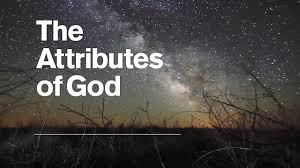The Decrees of God
The decrees of God is His purpose or determination with respect to future things. The Sciptures make mention of the decrees of God in many passages and under a variety of terms. The word "decree" is found in Psalm 2:7, Eph. 3:11, here we read of God's eternal purpose. In Acts 2:23 we read of His "determinate counsel and foreknowledge. In Eph.1:9 we read of His good pleasure. God's decrees are called His counsel to signify they are complety wise. They are called "God's will" to show He was under no control, but acted according to His own pleasure and for His own glory.
The decrees of God relate to all future things without exception: Whatever is done in time, concerning biblical redemptive history was foreordained by God before time. We learn from scripture that God works all things after the counsel of His own sovereign will. Thus, the decrees of God are declarations or pronouncements that He has made in working out His purposes in various ages. Paul wrote, "And we know that God causes all things to work together for good to those who love God, to those who are called according to His purpose." The decrees of God extend to His creation of His universe, His plan of salvation for humankind, and His divine providence over all things.
Next, I will consider some of the properties of God's divine decrees.
First, they are eternal:To suppose any of the decrees to be made in time is to suppose that some new occasion has occurred, some unforeseen event or a combination circumstances has arisen, which caused God to form a new resolution/decree. Sadly, this type of thinking argues the limits of deity. As if God needs to become wiser and more progressive with time. Instead, God is not ignorant of future events which will be carried out by human volitions; for God is the one who foretold them and governs them ny way of providence. God is in control of all things eternally and His decrees are eternally immutable.
Second, the decrees of God are wise: Wisdom is shown in the selection of the best possible ends and of the best means of accomplishing them. The Psalmist wrote, "O Lord, how manifold are your works. In wisdom you have made all" Ps. 104:24.
Third, the decrees of God are free: Isaiah the prophet wrote, "Who has directed the Spirit pf the Lord, or being His counselor has taught Him in the path of judgement and taught Him knowledge and showed Him the way of understanding?" Isa. 40:13.14. The Triune God was alone when He made His decrees and what He determined before the foundation of the world were influenced by no-one. He was free to decree or not to decree. He has liberty to do as He pleases.
Fourth, the decrees of God are absolute and unconditional: The execution of them is not suspended upon any condition which may, or may not be, performed. In every place where God has determined the end, He has also chosen the means. His "counsel will stand and He will do all His pleasure" Isa. 46:10.
In conclusion, a word caution, the Bible plainly teaches that man is a responsible creature and answerable for his own actions.




Comments
Post a Comment